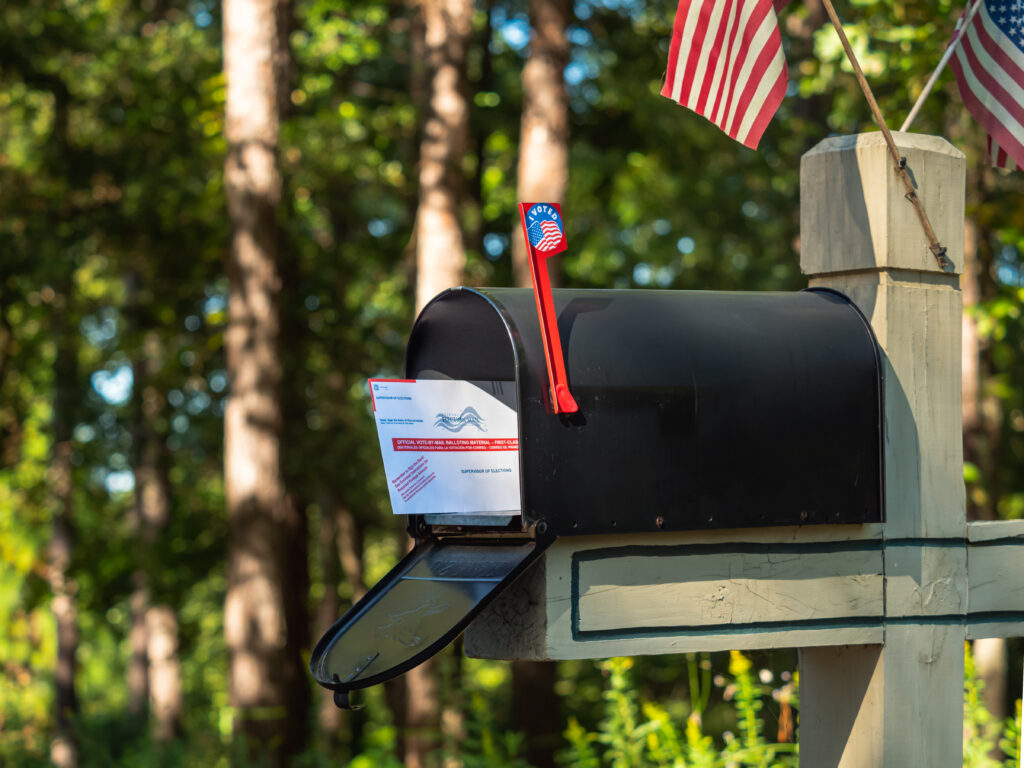
The U.S. Supreme Court looks set to be asked to rule on a far-reaching GOP bid to ban states from accepting ballots that arrive after Election Day, potentially disenfranchising a large number of voters across multiple states.
No petition has yet been filed with the Supreme Court. But a federal court paused proceedings Tuesday in a Republican lawsuit challenging Mississippi’s ballot receipt deadline law. The court wrote in its order that the case will remain paused until the Supreme Court weighs in on the issue.
“All District Court proceedings in the above-styled consolidated cases are hereby STAYED pending the filing and disposition of a petition for a writ of certiorari in the United States Supreme Court and the conclusion of any Supreme Court proceedings on the merits,” District Court Judge Louis Guirola wrote in his order.
With the state apparently set to ask the Supreme Court to weigh in on the issue, the Justices could then choose to hear the case — with potentially far-reaching implications — or could decline to do so.
Under Mississippi law, all mail-in ballots that are postmarked on or before Election Day are counted, so long as they are received within five business days of the election. But in January 2024, the Republican National Committee (RNC), the Mississippi Republican Party and several voters sued to overturn the law, arguing that the five-day deadline to count ballots “effectively extends Mississippi’s federal election past the Election Day established by Congress” and results in “valid ballots” being “diluted by untimely, invalid ballots.”
In their lawsuit, the RNC alleged that Mississippi’s mail-ballot receipt deadline violates the First and 14th Amendments, as well as federal law, which they argued sets “one specific day as the uniform, national Election Day for federal office.” The plaintiffs asked the court to strike down the law so that any mail-in ballots received after Election Day will be tossed out.
In July, a district court upheld Mississippi’s deadline, but the RNC appealed the case to the 5th U.S. Circuit Court of Appeals. The appeals court reversed the district’s decision in October, declaring that Mississippi’s mail-in ballot receipt deadline violates federal law. The ruling didn’t apply to the 2024 election because the 5th Circuit sent the case back to trial court to determine how to implement it.
Mississippi Secretary of State Michael Watson (R) now appears set to ask SCOTUS to hear the case, according to the federal court’s order. That means the nation’s highest court is poised to determine the future of states accepting mail-in ballots that arrive after Election Day — something that the GOP and President Donald Trump have long sought to ban.
Currently 17 states, along with Puerto Rico, the Virgin Islands and Washington, D.C., count mail-in ballots if they’re postmarked on or before Election Day but received after. California, Texas, Ohio, and Nevada are among that group.
In March, Trump issued a sweeping executive order targeting voting and elections. Among its many provisions, the order threatened to withhold funding from states that accept ballots that arrive after Election Day. The order was met by a barrage of lawsuits, including one filed by Democratic attorneys general in 19 states, arguing that it violates the Constitution by attempting to seize control over elections from the states.
But should SCOTUS rule that Mississippi’s mail-in ballot receipt deadline violates federal law, it would affirm the goal of Trump’s order, potentially disenfranchising millions of voters.
A ban on ballots arriving after Election Day also would force states and voting groups to expend scarce resources on educating voters about the new rules, in an effort to get them to mail their ballots in time to arrive before Election Day.
It also could massively raise the number of voters who would be disenfranchised by mail delays — at a time when Trump has expressed an interest in taking more direct control over the U.S. Postal Service.
Research assistance from Ashley Cleaves
